Caring for a Yorkshire Terrier: Facts You Should Know
An Introduction to the Yorkie – A Little Bit about Its
History
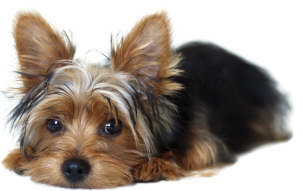 The third most popular dog breed in the U.S.
is the Yorkshire terrier (commonly
known as a Yorkie). They originate as you might have already guessed, from
Yorkshire, England. During Victorian times, the little dogs worked in mines and
cotton factories as ratters. However, they eventually left those dreary environments
and moved up in society. The third most popular dog breed in the U.S.
is the Yorkshire terrier (commonly
known as a Yorkie). They originate as you might have already guessed, from
Yorkshire, England. During Victorian times, the little dogs worked in mines and
cotton factories as ratters. However, they eventually left those dreary environments
and moved up in society.
In fact, in the latter part of the 1800s, the dogs were quite fashionable and
were often seen being carried beneath a stylish lady’s arm or in her handbag.
Because of selective breeding, the very small canines were made into lap dogs.
Therefore, the ancestors of Yorkies were not nearly as small as the Victorian
dogs and make the Yorkies of today seem tiny. Yorkshire terriers became an official recognized breed
of the American Kennel Club in 1885.
A Few Stats about the Yorkie
The Lilliputian canine usually stands about 8 inches at the shoulder and weighs
between 4 and 6 pounds. Dogs are colored black and gold, blue and tan, blue and
gold or black and tan. A companionable pet, the Yorkie is ideal for singles as
well as families with older children in their household. Yorkie dogs can live
quite a long time, or up to 15 years. Due to their small size, Yorkie dams
deliver their pups by cesarean section. The pups, when first born, sleep more
often than a cat, or about 90% of the time. Although the dogs are the smallest
of canines, they still make excellent watch dogs.
Tips on Caring for a Yorkie
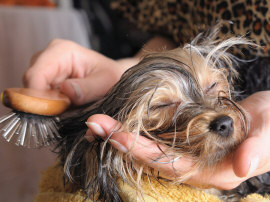 Whether you’re thinking of acquiring the terrier or already own a Yorkie, the
following tips and information can help you in its care. Whether you’re thinking of acquiring the terrier or already own a Yorkie, the
following tips and information can help you in its care.
Foods that Should Not be Given to a Yorkie
Certain foods are toxic to Yorkies as well as all dog breeds. Never give your
dog walnuts, raisins, chocolate or grapes. Also, don’t give your little dog
turkey food scraps, especially the dark meat or skin. Doing so will make your
dog violently ill and can be fatal. Yorkie digestive tracts are known to be
delicate. So, make it a rule to provide your dog with a sensible diet and don’t
feed it anything that is a little bit too out of the ordinary.
That also means excluding cereals, grains, or fillers from your dog’s menu.
Don’t give your Yorkie dog food that contains any substantial amount of corn,
soy, or wheat. Also, never buy a dog food that contains such byproducts as rice
flour, brewer’s yeast or beet pulp in the ingredient listing.
Yorkies should not be given the same food you’d feed a cat either as the food
is too rich for the dog’s sensitive digestive system. Feed your dog a wet,
nutritional food combined with a healthy dry food or kibble.
Factoring in the Time and Expense of Owning a Yorkie Pup
 Yorkies don’t cost too much to feed and house. However, you still have to
anticipate the expense when selecting a Yorkie puppy. Before you adopt a dog,
take factors into consideration such as: Yorkies don’t cost too much to feed and house. However, you still have to
anticipate the expense when selecting a Yorkie puppy. Before you adopt a dog,
take factors into consideration such as:
- How much will it cost to feed the dog monthly?
- How much time will I have to devote to training?
- How much time will I need to spend on grooming? (You have to brush your
Yorkie’s hair every day to avoid matting).
- How much time will I need to spend exercising the dog? Even little dogs
like Yorkies need to be walked every day. In fact, if your Yorkie speeds
around the house like he’s been shot out of a cannon, it means that he’s not
getting enough exercise. Yorkies will also yap, behave neurotically, or bark
to excess if they don’t receive a daily walk.
- How much will I need to spend on the dog’s veterinarian care? You may
want to consider investing in a pet insurance plan as it costs a dog owner
about $15,000 per year to own a medium sized dog. So, use that figure as a
gauge to estimate the amount it will cost you to own a Yorkie as a pet.
Besides the Heat, Yorkies May Pant if They are Anxious or
Suffering from an Illness
Like all dogs, a Yorkie’s sweat glands are located in his paw pads, with some of
the glands also found around the nose. That’s why a dog pants when he is warm.
The blood vessels in the canine’s tongue are cooled by the evaporation of the
saliva. Yorkies usually pant when they are warm or feel anxious. An older Yorkie
may also pant if he has a health issue, such as a respiratory or circulatory
ailment, or if he is suffering from a seizure.
Training Your Yorkie
When training your Yorkie puppy, don’t rely solely on treats to get him to obey.
Otherwise, you’ll find that he is the one in charge of the training, not you.
However, that being said, research studies do show that the little dogs can
easily recognize commands. One study found that, out of 132 dog breeds, Yorkies
ranked 27th in following their masters' directives.
Your dog should know such basic commands as stay, sit, come, and lie down in
order to avoid behavioral issues down the road. Be patient in your training and
repeat the commands until they are understood. Reward the proper response with a
healthy, bite-sized treat, on occasion, or an affectionate pat.
Treat and Train Your Yorkie Like You Would a Larger-sized
Canine
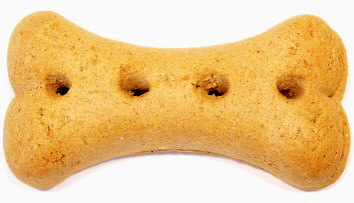 Yorkies can develop small dog syndrome where they can become quite unruly. So,
don’t allow the dog's cutey pie looks to cause you to spoil him or coddle him.
You should treat him just like you would a larger-sized dog. Otherwise, your
little dog can develop an attitude where he can become either overprotective or
jealous. Yorkies are also known to have a terrier type demeanor. Therefore, they
like to test their adopted owner’s patience. Yorkies can develop small dog syndrome where they can become quite unruly. So,
don’t allow the dog's cutey pie looks to cause you to spoil him or coddle him.
You should treat him just like you would a larger-sized dog. Otherwise, your
little dog can develop an attitude where he can become either overprotective or
jealous. Yorkies are also known to have a terrier type demeanor. Therefore, they
like to test their adopted owner’s patience.
So, as long as you treat the little dog like a bigger dog and keep him on a
regular schedule with respect to eating, exercising, and bathroom breaks, he’ll
remain well-behaved.
Housetraining Your Yorkie
Because Yorkies can be difficult to housetrain, you’ll probably need to combine
crate training with housetraining to ensure the message is reinforced that the
outside is the area where your dog should do his business. It’s best to take
your pup outside every couple hours to their designated bathroom spot,
preferably a grassy area.
Regularly set a time aside for housetraining if you want to avoid getting
your rugs, floor or carpet soiled or stained. Get into the habit of taking your
dog out in the morning when you get up and before you turn in at night as well.
Crate Training
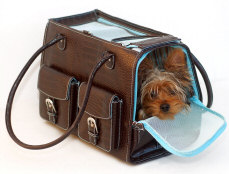 Using a crate will teach your Yorkie to wait to go to the bathroom and not go in
the area where he relaxes or sleeps. For the utmost effectiveness, you still
need to take your dog outside every couple hours as well. Yorkies should be put
inside a crate for potty training as well as when they are acting up and need to
calm down. Never leave your dog in the crate longer than 3 hours at a time. Using a crate will teach your Yorkie to wait to go to the bathroom and not go in
the area where he relaxes or sleeps. For the utmost effectiveness, you still
need to take your dog outside every couple hours as well. Yorkies should be put
inside a crate for potty training as well as when they are acting up and need to
calm down. Never leave your dog in the crate longer than 3 hours at a time.
Encouraging Your Dog to Go Inside His Crate
To encourage your dog to go into the crate, place a blanket within the cage as
well as treats. Praise your dog when he goes inside the crate to retrieve them.
Or, toss a favorite toy with a treat in the box. Wait for him to bark and
scratch at the crate’s entry to get inside. After a few minutes, open the door
to the crate. Once you follow this process several times, he’ll easily go into
the crate.
Grooming Your Yorkie
Clip your Yorkie’s hair each week. Also, trim any hairs around the ears and
feet. The nails should be clipped as well. Make the chore easier by placing your
dog on a bath mat.
Styling Your Yorkie’s Hair - Making a Top Knot
Yorkies look great sporting top knots with a bow. To obtain the look for your
pet, follow the steps below:
- Make a part ear to ear, then section the hair so that it is gathered
above each ear.
- Take a small latex band and place it around both gathered sections in
the middle, then take a few center strands and pouf them back.
- Place another latex band about an inch above the first band.
- Finally, smooth the hair with a bit of gel before tying the dog’s hair
with a bow.
- When removing the latex bands, cut them out of the hair so you don't tug
on the roots of the hair or cause any damage to the strands.
To create the look, you’ll need latex bands, gel, a hair bow, hair clips (for
sectioning), and a fine-toothed comb.
The following video is an introduction to the top knot, as it is displayed
for dog events and shows:
Shampooing Your Dog’s Hair
Never use the same shampoo on your Yorkie that you’d use on your own hair as the
pH balance will conflict with the composition of a dog’s skin and hair. Rather,
use a dog shampoo that is recommended by your vet. Wash your Yorkie’s hair
approximately every ten days. Introduce your dog to the process when he’s one
month old so he can become acclimated to getting his hair washed fairly
frequently.
Yorkies are Extremely Sensitive to Cold Temperatures
Yorkies are extremely sensitive to cold temperatures. So, when you bathe your
pup, dry him with towels that you’ve just pulled out of the drier. Keep a sharp
eye on your Yorkie’s well-being as the dogs are prone to respiratory infections.
Buy a couple of doggie sweaters and coats for walking your dog out in the cold.
Handle with Care
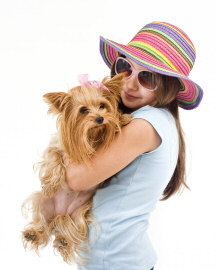 Yorkie dogs have frames that are fragile. Therefore, gently handle and pick up
your little canine friend to avoid any fractures. Yorkie dogs have frames that are fragile. Therefore, gently handle and pick up
your little canine friend to avoid any fractures.
Physical Ailments
Yorkies are more susceptible than other dogs to herniated discs, which,
in turn, can turn into paralysis. Therefore, you need to have the dog checked
regularly by a vet.
If you notice that your dog is limping, he may have a condition, known as
Legg-Perthe’s disease, or Legg-Calve-Perthes syndrome (LCP). Affecting
small dog breeds, LCP is denoted by degeneration of the hip joint. The
condition, which can lead to arthritis, is usually first diagnosed when a Yorkie
is around 6 months to a year old.
Yorkies also are prone to patellar luxation, a condition in which the
kneecap pops out of place. Also referred to as a floating kneecap, the condition
is typically first diagnosed when a Yorkie is 6 months old.
Yorkie dogs frequently suffer from a collapsed trachea. The trachea or
windpipe is the connecting link or airway between the throat and lungs. It is
made up of cartilage that comprises approximately 40 C-shaped rings along with
ligaments and muscles that form a kind of tube. If the rings become flattened, the trachea collapses. Flattening can result from drawing in air too fast.
For some reason unknown to scientists, Yorkies can develop this health issue.
The most pronounced clinical sign of a collapsing trachea is a harsh, chronic
or dry cough. The cough is usually noted more often during the day than it is at
night and can result when you pull on the dog’s leash or when he drinks or eats.
He may also produce the cough when he’s overly excited too.
Reverse sneezing, (Pharyngeal Gag Reflex), is another condition
experienced by Yorkies, and results from spasms originating in the pharynx. In
turn, the dog makes a wheezing or snorting sound. This sneezy condition can be
alleviated if you get the dog to swallow. Calm him down by petting him gently
before picking him up and exposing him to some fresh air. Some experts recommend
that you stop up the dog’s nostrils by placing your fingers over the openings.
However, since your dog is already having difficulty breathing, it may cause him
less anxiety by getting him into a well-ventilated area instead.
The following video shows a Yorkie reverse sneezing. While it may look like a
medical emergency, the condition is not usually life-threatening but the result
of allergies.
Tear Stains Caused by Infection
All Yorkie dogs develop tear stains, otherwise known as eye discharge or eye
gunk. Typically, the stain develops as the result of a bacterial or yeast
infection. In other instances, they may form due to an allergy. In the case of
infection, there are hypoallergenic wipes and removal treatments that will clear
the eye area. You can also add antibiotic type supplements to your dog’s diet
for a short period of time. Antibiotic ointments will also resolve the problem
too.
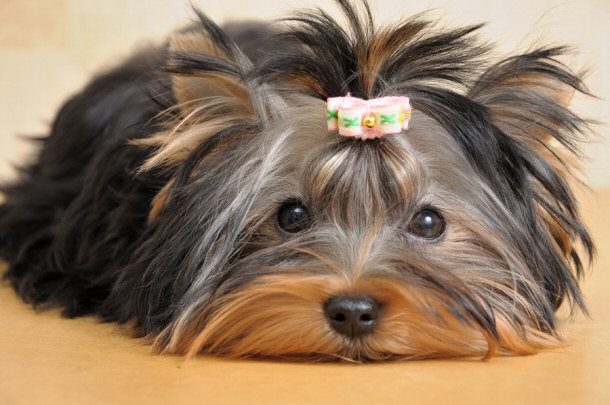
Tear Stains that Result from Allergies
Should the tear stains be the result of an allergy, you’ll need to find out what
food allergens are causing the problem. Typically, if you eliminate wheat from
your dog’s diet, you can get rid of the stain. Or, you may want to change the
type of water you are giving your Yorkie. Tap water can contain certain
impurities and chemicals that can cause staining. Therefore, you may have to
switch out water produced from the tap for distilled water instead which you
should probability already be doing anyway.
Tear Stains Produced by Irritants
Irritants can also create tear stains as well. Therefore, make sure that you
trim the hairs around your dog’s eyes and that there are not any inward pointing
strands.
Pets
Top Lists:
18 Richest Animals in the World
15 Exotic Pets You Could Own Today
Top 20 Common Substances That Are Toxic to Cats and Dogs
Informational:
Animal Actors: Pets in the Film, TV, and Print Industry
Caring for a Yorkshire Terrier: Facts You Should Know
Caring for a Pig as a Pet: The Pot-bellied Pig and the Micro Pig
Difference Between a Cat Person And a Dog Person
Should You Microchip your Cat or Dog?
How to Raise and Care for Pygmy Goats
Caring for Unique Pets: The Leopard Gecko
Use Food-Grade Diatomaceous Earth to Kill Fleas Naturally
Dogs:
Top Lists:
Top 15 Dog Breeds For Home Protection
15 Fascinating Facts About The Mastiff
Informational:
How To Teach Your Dog to Hunt for Truffles
Caring for an English Bulldog: Tips and Basic Info
Cranial Cruciate Ligament (CCL) Tears in Dogs: Treating the Injury
How To Keep Your Dog free of Heartworm Disease
Dog With Separation Anxiety?
Cats:
Top Lists:
Top 6 Qualities in an Awesome Cat
Informational:
How to Control Fighting Felines
How to Get Your Cat to Exercise
Fish:
Fish 101 for the Hobbyist: The Fish’s Body and Senses
Buying a Saltwater Aquarium: What You Need to Know
Graduating to a Saltwater Tank
|